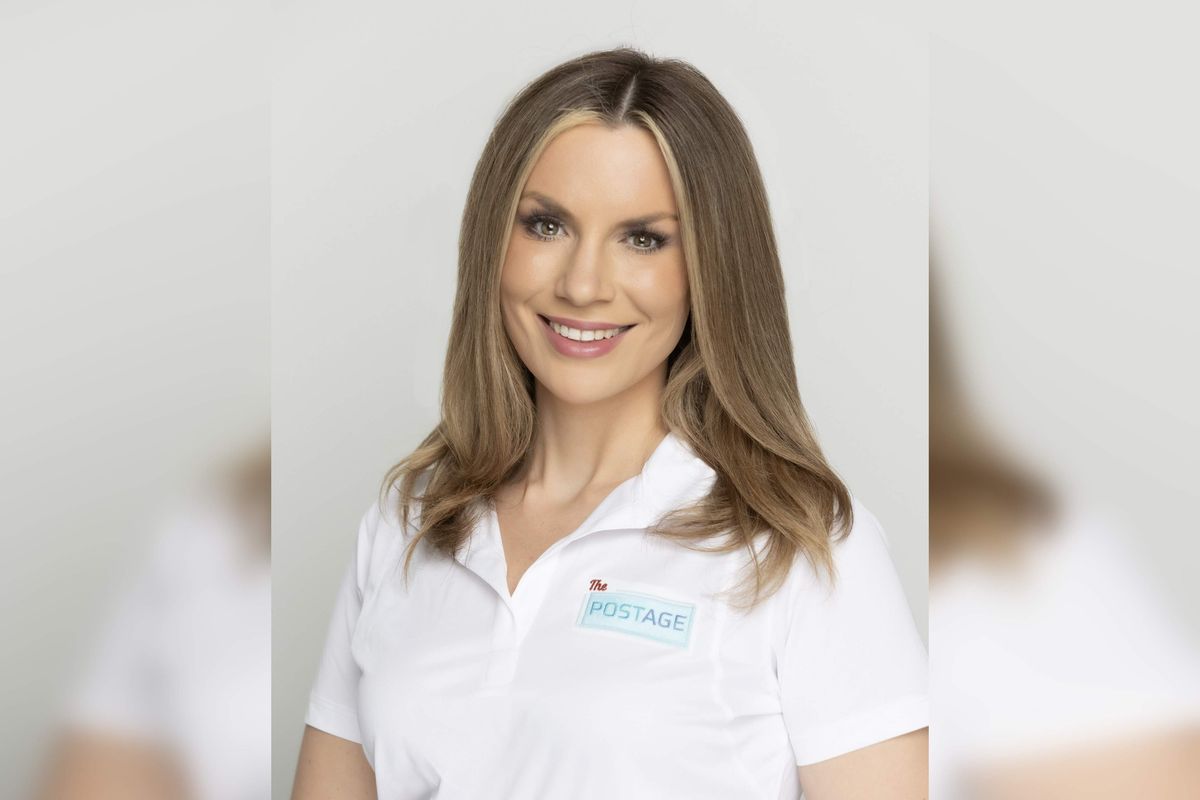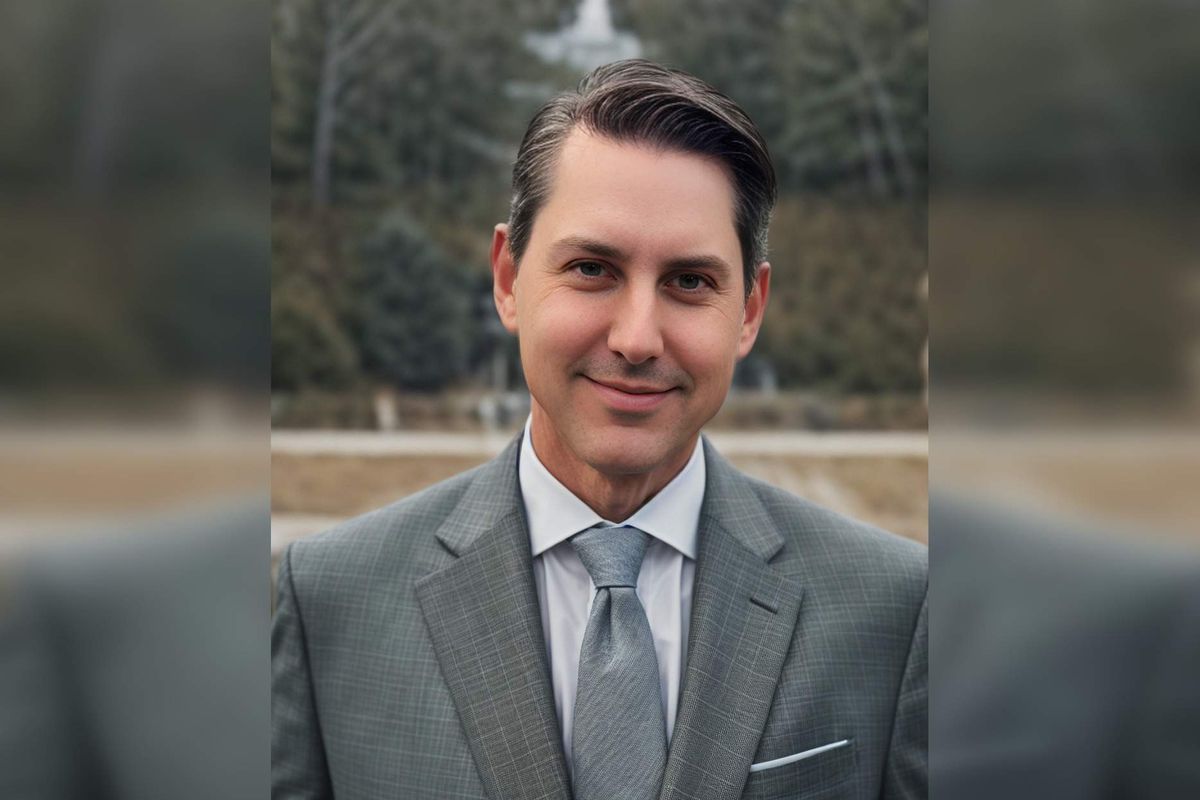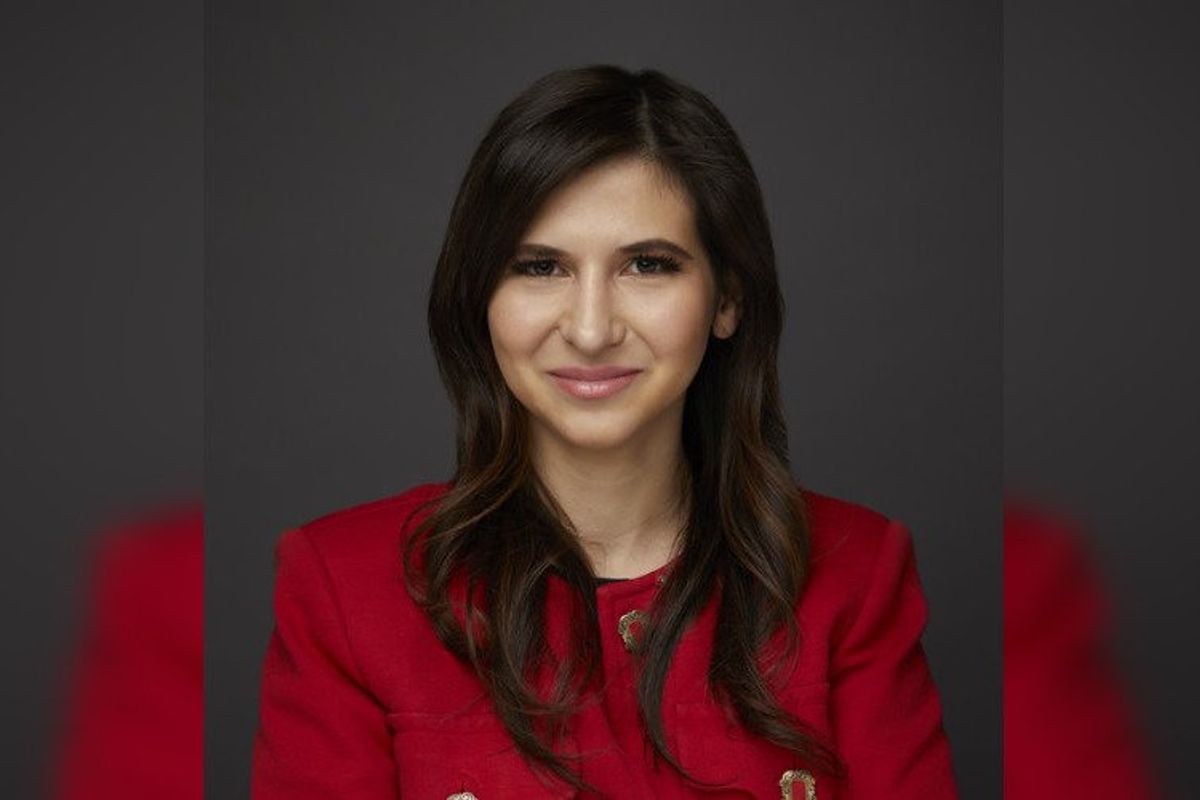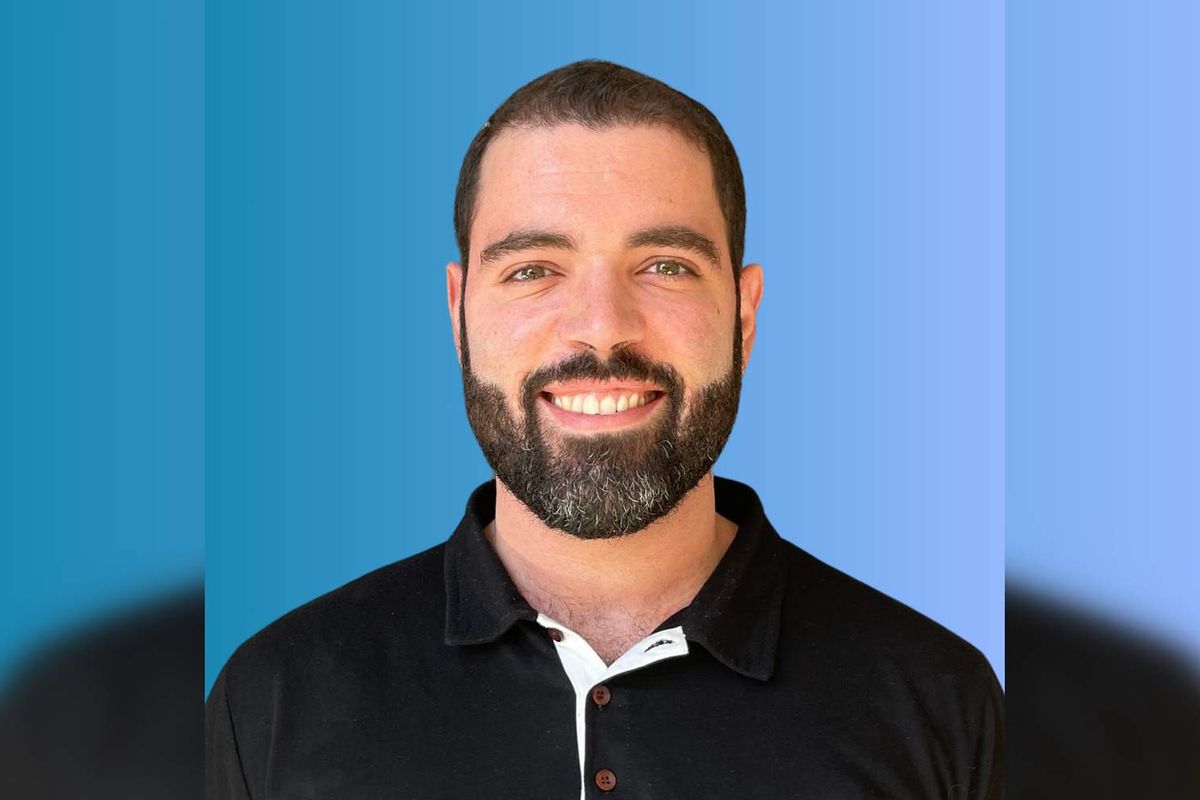It takes a village to launch, run, and grow an innovative startup.
And from helping founders gain access to capital to promoting diversity, offering mentorship and hosting pitch events, demo days and more, this year's six Community Champion Organization finalists are part of that village. Learn about each of the finalists and what drives them to support the Houston innovation ecosystem in the interviews below.
Click here to secure your tickets to the Houston Innovation Awards this Thursday, November 14, where we will announce the winner.
Describe your company's work within the Houston innovation ecosystem.
Energy Tech Nexus is a new global energy and carbon tech hub focusing on hard tech solutions that started January 1, 2024, when Jason Ethier and Juliana Garaizar left Greentown Labs to create a Houston-headquartered climate hub serving as a global landing pad for energy and carbon tech stakeholders. Since then, 90 entrepreneurs have joined, of which 70 percent are underrepresented and 20 are international. Our ETN Grand Opening on September 10 showcased 50 of its companies as well as programs from Canada with TechNL, Australia with Austrade, and MassChallenge with 521 attendees total. Energy Tech Nexus provides mentor, accelerator and educational programs for entrepreneurs and underserved communities, partnering with entities like Houston Community College and Econwerx, plus national networks such as VentureWell, the LatinX Startup Alliance, and Browning the Green Space and global networks Impact Hub and U.S. Spain Executive Committee (USEC).
Why has your company decided to support the Houston innovation ecosystem?
Energy Tech Nexus was specifically created to support the evolving Houston innovation ecosystem in energy transition with a more Houston-centric and inclusive approach regarding the oil and gas industry. ETN's hands-on approach is very data-driven and results-oriented with a customized approach for every entrepreneur, depending on the stage of their startup/scaleup. ETN also extensively uses peer learning from key expert entrepreneurs or Fellow members who are in charge of creating events and animating the ecosystem.
Describe your company's impact on the Houston innovation ecosystem.
Since ETN's inception, its members have secured over $200 million in funding, given pilot demonstrations, and five grants. ETN has also become a landing pad for international companies from Latin America, Canada, Europe, Israel and Australia and will soon be expanding in Chile and Spain. Even before its soft-opening at the old EDPR offices at the Esperson Building downtown, ETN had already onboarded 30 members and organized a mission with 18 of them to Spain for the Energy Tech Summit, fully sponsored by the Basque Government, where they all met with the key Spanish players in the global energy transition. ETN was also granted an SBA Growth Accelerator Fund Competition Stage 1 award with ImpactHub Houston to develop the Houston Equitable Energy Transition Alliance that successfully launched on July 1 and had its Pilothon Pitch event during ETN's Grand Opening.
Who is the person/people leading your company's innovation team?
Jason Ethier has been leading ETN's innovation team with very novel approaches in data management and insights generation.
Describe your company's work within the Houston innovation ecosystem.
Greentown Labs Houston opened on Earth Day 2021 as the city's first-ever climatetech startup incubator. With 30 members from the onset and anchoring supporters from the community, such as Greater Houston Partnership and 17 strategic corporations as founding partners—including Shell, Engie and Chevron—we've played a key convener for the energy transition and climatetech community ever since. Now, with three years of deep community engagement in the Houston area and many more partners and startups supported through local Greentown Houston programming, we've proudly supported more than 160 startups at Greentown Houston and have welcomed 22 new startups in 2024 alone. We recently played a key, anchor role in the city's first-ever Houston Energy and Climate Startup Week. We can't wait to see how the week-long event series will grow next year.
Why has your company decided to support the Houston innovation ecosystem?
Greentown Labs opened its second location in Houston because we believe it is the best place to broaden our impact and help accelerate the energy transition through climatetech entrepreneurship in partnership with the nation’s fourth largest city and the world-leading energy organizations headquartered there. We want to be an on-the-ground catalyst for the energy transition in Houston—for the entrepreneurs and innovators, organizations and communities that have already begun the transition and to spark new change for those who have yet to engage. Greentown Labs believes we can not solve climate change from the coasts—it’s critical to engage the talent and energy of all other major ecosystems around the country, especially in the middle of the country. We need all hands on deck at this time. We aim for Greentown Houston to be a place for convening climatetech startups, investors, corporate partners, partners, students and other stakeholders working in climatetech and energy transition innovation in Houston.
Describe your company's impact on the Houston innovation ecosystem.
Most recently, Greentown Houston was proud to serve as an anchoring partner on the first-ever Houston Energy and Climate Startup Week alongside Halliburton Labs and Rice Alliance for Technology and Entrepreneurship. But on an ongoing basis, Greentown Houston serves as a convener of the ecosystem—regularly hosting events. Our Transition on Tap networking event has become a regular event on many innovators' calendars. We run the Houston Ion District Investor Activation Program in partnership with the Ion to bring more early-stage investors in the Houston region into the climatetech ecosystem. We've successfully run two years of our ACCEL accelerator program, which supports underrepresented founders developing climatetech solutions—many of the participants are Houston-based startups. We regularly publish a Pilot Digest, which highlights our startup member companies that are actively seeking pilot partners in Houston and beyond. And we regularly host fundraising training sessions for our startups.
Who is the person/people leading your company's innovation team?
Timmeko Moore Love leads Greentown Houston as Greentown Labs’ first Houston general manager and senior vice president. She previously served as the first Black woman in the Fortune 500 to lead a venture capital program and ... brings deep industry and venture expertise.
Describe your company's work within the Houston innovation ecosystem.
For over two decades, HAN has supported the innovation ecosystem of Houston with capital, connections, and counsel for startups and founders. Through our events and active involvement in early-stage incubators, accelerators, and mentoring programs, we educate Houstonians about the role that early-stage capital plays in fueling innovation. We also give accredited investors access to startup deals in which they can invest, both locally and nationally.
Why has your company decided to support the Houston innovation ecosystem?
Following in the footsteps of one of our founders, Paul Frison, HAN members love innovation and want to support it. Some HAN members are entrepreneurs with successful exits, whereas others are intrapreneurs who helped bring innovation to Fortune 500 companies. We have a shared passion for “the future,” and as investors believe we can use a portion of our capital to support meaningful change.
Describe your company's impact on the Houston innovation ecosystem.
HAN is one of the best sources for startup capital in Houston, with a diverse group of 100 members across many specialties. We hold monthly pitch meetings, quarterly educational socials, and other events where founders and funders can connect. HAN was the launch pad for some of the most talented investors in Houston. The learning and connections made at HAN (both by members and staff) led to the funding and/or founding of Mercury Fund, Artemis Fund, Texas HALO Fund, GOOSE Capital, and others. This year, HAN launched a strategic relationship with the University of Houston so that more UH alumni can become early-stage investors, mentors, and advisors. HAN also hosts educational events that are open to the public, including Aerospace Investing, Energy Investing, Women on Boards and multiple Angel 101 programs. HAN actively collaborates with other angel groups in Texas to help get more deals funded in Texas. In addition to investing, many HAN members have become advisors, board members, and CEOs of early-stage companies, both in Houston and beyond.
Who is the person/people leading your company's innovation team?
Our leadership team includes Eric Schneider, Eric Alfuth, Mitra Miller, and Rezwan Mirza as officers, and Samia Ahsan as managing director.
Describe your company's work within the Houston innovation ecosystem.
We provide a platform for collaboration, networking, and knowledge sharing. This community-centric approach fosters a supportive environment where ideas can flourish and partnerships can thrive. We are dedicated to supporting early-stage ventures at various stages of development. Our programs cater to entrepreneurs from ideation to scaling stages, equipping them with the resources, mentorship and networks needed to succeed. Impact Hub Houston designs and implements innovative programs that address pressing societal issues. From tackling healthcare disparities to promoting sustainable practices, our programs aim to create positive social change through entrepreneurship and innovation. These initiatives not only drive economic growth but also enhance the quality of life for Houstonians. Impact Hub Houston also serves as a catalyst for advocacy and thought leadership in the innovation space. We advocate for policies that support entrepreneurship and social impact, amplifying the voices of our community members on critical issues. Our thought leadership initiatives, including editorial content and public engagements, contribute to shaping the future of innovation in Houston and beyond.
Why has your company decided to support the Houston innovation ecosystem?
Impact Hub Houston's decision to support the Houston innovation ecosystem is deeply rooted in our mission to empower and connect change-makers, entrepreneurs and social innovators who are committed to solving the most pressing challenges facing our communities. Houston, as one of the most diverse and rapidly growing cities in the U.S., provides a fertile ground for innovation across multiple sectors, and we believe that an inclusive, collaborative ecosystem is key to unlocking its full potential. Our commitment stems from several core reasons, including but not limited to:
- Leveraging Houston’s diversity for innovation: We see this diversity as an asset to the innovation ecosystem, fostering creativity and inclusive problem-solving. Impact Hub Houston’s work centers around ensuring that innovators from all backgrounds, especially those from historically underrepresented communities, have the resources, support, and connections they need to thrive.
- Addressing Local and Global Challenges: Houston is a city of significant opportunity but also faces challenges in areas like health care, climate resilience, social justice, and education. We believe that the innovation ecosystem here has the potential to develop solutions that not only address local challenges but also have global implications.
- Closing the Gaps in Access and Opportunity: Despite its opportunities, Houston’s innovation ecosystem still reflects gaps in access to capital, mentorship, and resources, particularly for entrepreneurs of color, women, and other marginalized groups. Impact Hub Houston exists to level the playing field and provide equitable access to the innovation pipeline.
Describe your company's impact on the Houston innovation ecosystem.
We mobilize problem solvers to use their knowledge, skills and technology to address community challenges, demonstrating our commitment to local impact while also providing a global reach for Houston innovators. Our work extends to supporting underrepresented communities, and we work with public and private stakeholders to promote sustainable business practices that prioritize economic development, environmental stewardship and social equity.
Who is the person/people leading your company's innovation team?
Grace Rodriguez, CEO and executive director of Impact Hub Houston, leads a team that consists of Deputy Director and Co-founder of Impact Hub Houston Michelle Avalos and Community Catalyst Akeel Bernard.
Describe your company's work within the Houston innovation ecosystem.
Microsoft's day-to-day work is innovation, so it is only natural that we want to support the local innovation ecosystem in the cities where we operate. Our work in fostering innovation begins in middle school and continues to entrepreneurship and corporate innovation. We focus heavily on innovation in underserved communities and support for underrepresented founders. And we also have been working hard to bolster the climate tech and sustainability sectors in Houston.
Why has your company decided to support the Houston innovation ecosystem?
Our presence in Houston empowers us to better serve our customers, give employees the choice of staying close to personal networks and family, establish strong civic engagement programs that are aligned with Microsoft’s core values and more. Houston is a vibrant city where many of our consumer and business customers live and conduct business. Having a finger on the pulse of innovation where they are helping us support their needs. The Ion and the collaborative work environment we aim to foster will help us build deeper ties with Houston and the university systems, as well as others driving transformational initiatives locally. Furthermore, Houston has also been described as the most racially and ethnically diverse major metropolis in the U.S. All this makes Houston the perfect place to find and develop talent for Microsoft in a place where we can be close to our customers. The Ion itself is focused on tapping into this diversity, which is one of the reasons we chose to locate there.
Describe your company's impact on the Houston innovation ecosystem.
Microsoft is a Terrawatt sponsor of Greentown Labs and we have a separate sponsorship for the Accel program for BIPOC founders. We are a sponsor of the Ion and Rice Alliance. We also sponsor local innovation events like Climate Tech Startup Week, Tech Fest Live, and AfroTech. We seek to promote and empower founders. As an example, we invited 9 startups with underrepresented founders or CEOs to join us for CERAWeek and present in our Agora House. These founders made incredible connections throughout the week. We bring our employees into all of the programs we sponsor. Whether it is office hours for founders, one-on-one mentoring, or making industry connections, our people are helping. We take this all the way back to school, where we support organizations like SuperGirls Shine Foundation and Prairie View A&M. We also have Minority Student Day at the Ion, a summer program for students, and more. Microsoft also hosts or is involved in hundreds of local events. It's impossible to list them all, but our people are involved and doing their best to grow the ecosystem.
Who is the person/people leading your company's innovation team?
Rob Schapiro leads the office and he and his team work closely with our local Employee Resource Groups, our venture teams, and Microsoft for Startups. Amy Mueller Reynolds is our business manager who leads a lot of this work. Success has come from having a clear mission and focusing on a few programs where we could make an impact.
Describe your company's work within the Houston innovation ecosystem.
The University of Houston has made significant strides in supporting and nurturing the startup ecosystem, both within the university and across the broader Houston region. Its efforts are designed to foster entrepreneurship, innovation and commercialization of new technologies, with a particular focus on leveraging its research capabilities and diverse student body. The Tech Bridge is a major hub for startup support and innovation. This 70-acre research park, located near the university campus, is designed to be a collaborative space for researchers, entrepreneurs and industry leaders. The Tech Bridge offers incubation and acceleration programs, commercialization support and industry collaboration.
Why has your company decided to support the Houston innovation ecosystem?
UH has made a strategic decision to support innovation and entrepreneurship for several key reasons that align with its mission to serve its students, the Houston community, and society at large. The primary motivations include but are not limited to:
- Economic Impact and Regional Growth: By supporting innovation and entrepreneurship, UH contributes to the city’s economic diversification and growth. Promoting startups and new ventures helps drive job creation, attracts investment, and strengthens Houston’s position as a center for innovation.
- Aligning with Houston’s Transition to a Knowledge Economy: As the global economy shifts towards knowledge-based industries, cities like Houston are diversifying beyond traditional sectors like oil and gas. UH recognizes that fostering innovation and entrepreneurship is critical to Houston's economic transition. UH plays a crucial role in helping the city remain competitive in emerging industries.
- Leveraging Research and Commercialization: UH is a research-intensive institution, with significant investments in areas like energy, healthcare, advanced materials, and data science. Supporting innovation and entrepreneurship enables the university to translate its cutting-edge research into real-world applications.
Describe your company's impact on the Houston innovation ecosystem.
The UH Technology Bridge has had a profound impact on Houston's innovation ecosystem by providing a dynamic environment where startups, researchers, and industry can collaborate, grow, and bring new technologies to market. The UH Technology Bridge hosts incubator and accelerator programs designed to help early-stage startups and research-based companies commercialize their innovations. These programs provide access to office and lab spaces, investment opportunities, networking and pilot and testing opportunities, commercialization support, collaborations and partnerships. Energy startups can collaborate with the university's energy research institutes, test prototypes, and pilot new technologies in UH’s specialized labs. The Technology Bridge’s proximity to the Texas Medical Center provides biotech and health tech startups with opportunities to develop, prototype, and pilot medical devices, diagnostics, and healthcare software.
Who is the person/people leading your company's innovation team?
Ramanan Krishnamoorti has successfully advanced UH innovation by providing a strategic vision, expanding key programs like the UH Technology Bridge, and fostering strong industry partnerships. Tanu Chatterji has been successful in leading the UH Technology Bridge through her strategic vision and leadership in fostering innovation and collaboration.

 Houston data scientist joins medical device startup amid AI evolution in the sectorAngela Wilkins joins the Houston Innovators Podcast to discuss the intersection of data and health care. Photo courtesy
Houston data scientist joins medical device startup amid AI evolution in the sectorAngela Wilkins joins the Houston Innovators Podcast to discuss the intersection of data and health care. Photo courtesy








